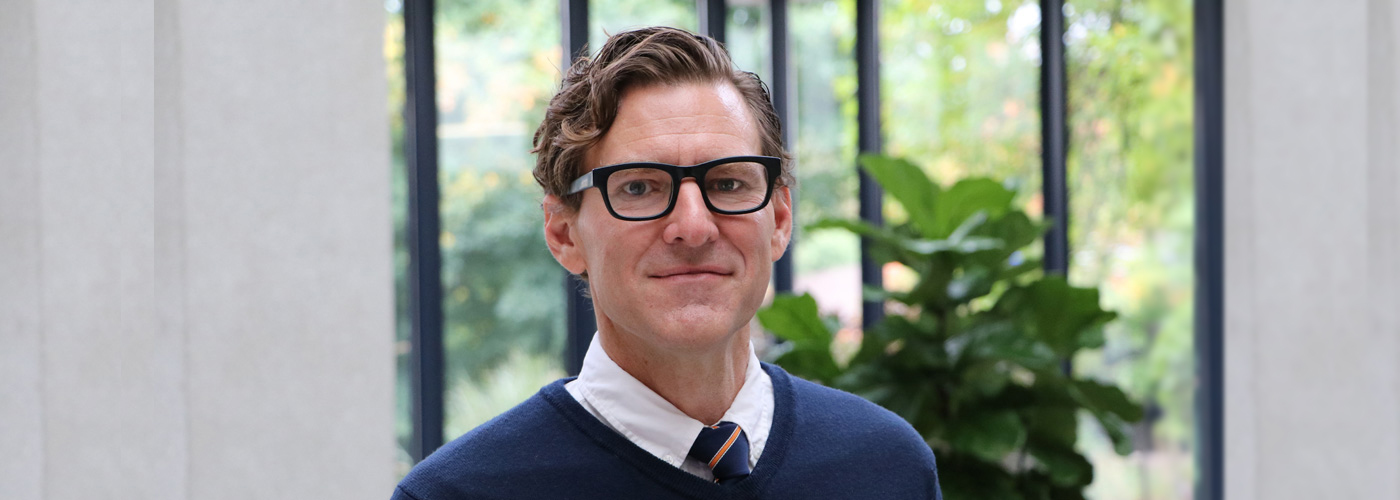
MOBE guides people with energy, empathy, and expertise, and we've bolstered our efforts by adding a board-certified medical doctor. We are honored and proud to have Jason Doescher, MD, as our Chief Medical Officer. Jason has a wide array of experience in neuroscience and epilepsy, as well as years of clinical practice championing comprehensive care. Jason is adept at combining scientific thought with warm consideration of human nature.
Get to know more about Jason below:
Can you tell us a little bit about your background?
I went to Creighton in Omaha, Nebraska, for undergrad, where I got a degree in chemistry. After that, I went back home to South Dakota for medical school at the University of South Dakota, then completed a pediatric residency at the Children’s Hospital of Wisconsin and a pediatric neurology residency at the Children’s Hospital Medical Center in Cincinnati, Ohio. I came to the Minnesota Epilepsy Group in St. Paul to do a clinical neurophysiology and epilepsy fellowship, and I spent the last 13 years practicing there before coming to MOBE.
What I especially loved about working at the Minnesota Epilepsy Group was that we focused on pediatric epilepsy in a beautifully comprehensive way. We had superior medical services, but we also had a clinical psychologist integrated into our program to help with other comorbid features like mood and behavioral issues. Parents are appropriately focused on their child’s development and cognition, so we were sensitive to monitoring for side effects and additionally had a neuropsychologist on our team to test and consult on their development. We also recognized the importance of social support, so we had a social worker on our team that would help families through the gauntlet of modern health care. We incorporated a pharmacist into our program to leverage expertise on medication management and drug development. This allowed us to minimize the number of medications and maximize the benefits of necessary therapy. When we integrated emotional and physical health, we got unbelievable outcomes.
What is the reason you left your practice to come to MOBE?
There are a lot of wonderful things in health care, but there are also a lot of opportunities to improve the delivery of help to people in need. I had the great pleasure of working with a lot of patients and families one-on-one. Now, I’m excited to join MOBE and to extend my reach across the country.
I’m coming out of my halftime of life and have been reflecting on keeping myself healthy. I’m thinking about how the health I maintain in my 40s and 50s is going to translate to my health, comfort, and quality of life later on. MOBE is an excellent vehicle for restoring people’s health, and that’s a critical, noble mission. It’s one thing to talk about helping people like a lot of companies do, and it’s another thing to have a vehicle to deliver help. MOBE has a great opportunity.
What gets you most excited about working for MOBE, and where do you see us headed as a company?
I’m excited to work toward making people healthier. We can bring a lot of science to the art of what we do and knowledge of the key ingredients to better health, like activity, nutrition, sleep, and emotional well-being. In each of these categories, we have directed expertise, but we also have warm humanities, and I think that’s the spirit of what MOBE delivers to its participants.
We have to help people. And then we’re going to continue to grow and evolve. We’re going to learn by doing, and we’re going to get better at helping people by being able to anticipate their needs. It has to be a real partnership with our participants. We’re really guides, assisting people through tough spots towards higher peaks and places. We often work with people who have complex chronic conditions, and it’s really hard to work through those obstacles without guidance and support.
What is your primary objective as the CMO of MOBE?
It can best be broken out into three main objectives:
In your opinion, what is the biggest need in the health care system today?
I think the system does a pretty good job educating people on why they should do certain things. It’s the follow-through of actually doing that is a lot more difficult. It is important to have a plan, but you have to execute that plan. Starting to transform is hard, but once you adapt your routine and behavior, you get positive feedback. When you get good results, momentum is easier to maintain.
As far as where health care reform needs to go, I think it’s offering individual support and comprehensive care. Treating someone’s high blood pressure and improving their numbers is great. But, if you’re only relying on medication, the next year, the patient may have to increase the dose or start taking a second medication. That’s not being successful. And the individual isn’t really getting healthier; they just need more therapy to achieve a target. Yes, we want people to manage and treat their high blood pressure, but we also want each individual to be healthier as a whole and, if possible, restore health instead of mask disease.
I have always treated my patients with the kind of whole-person approach that aligns with MOBE’s. I’m thrilled to be here.